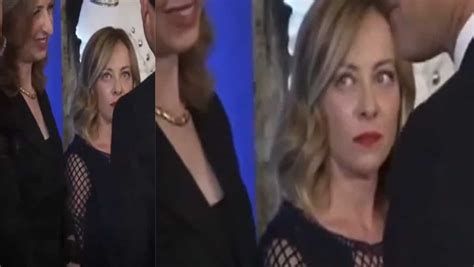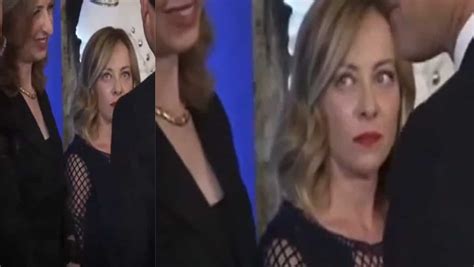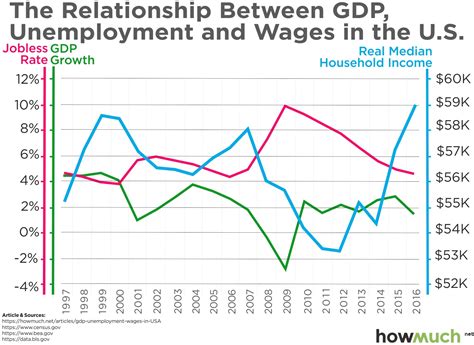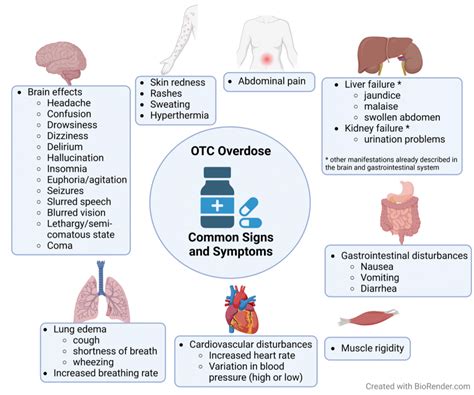
Italian Prime Minister Giorgia Meloni’s apparent eye roll at French President Emmanuel Macron during the G7 summit in Italy has ignited a social media firestorm, drawing attention to the subtle but significant dynamics between the two leaders. The fleeting moment, captured on video, has become a focal point for commentators and observers dissecting the relationship between the right-wing Italian premier and the centrist French president.
A brief exchange between Macron and Meloni ahead of a group photo opportunity became fodder for speculation after video footage showed Meloni seemingly rolling her eyes in response to something Macron said. The incident, though minor in the grand scheme of the summit, quickly went viral, sparking discussions about potential tensions and ideological differences between the two leaders. The video was widely shared on social media platforms, accompanied by various interpretations and speculations about the nature of the exchange.
The incident occurred as leaders gathered for a group photograph at the summit held in Apulia, Italy. Macron, seen conversing with Meloni, appeared to say something that prompted the Italian Prime Minister to react with what many interpreted as an eye roll. The gesture, though subtle, was immediately noticed by those present and quickly circulated online, becoming a talking point about the dynamics within the G7.
The relationship between Meloni and Macron has been closely watched due to their differing political ideologies and approaches to key issues. Meloni, who leads a right-wing coalition government in Italy, has often taken a more conservative stance on issues such as immigration and national sovereignty, while Macron has positioned himself as a progressive, pro-European leader. This difference in ideology has led to occasional clashes and disagreements, particularly on issues related to European Union policies.
The eye roll incident has been interpreted by some as a sign of underlying tensions between the two leaders. While neither Macron nor Meloni have publicly commented on the specific exchange, the reaction has been analyzed as potentially reflecting their differing views and priorities. The incident also highlights the scrutiny and attention that political leaders face in the digital age, where even the smallest gestures can be magnified and interpreted as significant statements.
The G7 summit, which brings together leaders from the world’s major industrialized nations, is often a venue for diplomatic negotiations and discussions on global issues. However, it also provides a stage for observing the interactions and relationships between leaders, offering insights into the broader dynamics of international relations. The Meloni-Macron incident, though seemingly trivial, has added an extra layer of intrigue to this year’s summit, underscoring the importance of understanding the nuances of leadership interactions.
The exchange occurred prior to the official photograph of the G7 leaders. The video circulating shows Macron speaking to Meloni, and as he finishes, Meloni appears to roll her eyes slightly before composedly turning to face the camera. Social media users rapidly amplified the footage, offering varying opinions on the meaning behind Meloni’s reaction. Some users suggested it reflected a dismissive attitude towards Macron’s comments, while others downplayed the gesture as a fleeting, inconsequential moment.
The event took place against the backdrop of broader discussions at the G7 summit, including topics such as climate change, economic stability, and international security. While the summit aimed to foster collaboration and consensus among the member nations, the incident between Meloni and Macron highlighted the undercurrents of political divergence that often exist even among allies.
The differing political stances of Meloni and Macron have been a recurring theme in their interactions. Meloni’s rise to power in Italy marked a significant shift in the country’s political landscape, with her right-wing coalition advocating for policies that prioritize national interests and stricter immigration controls. Macron, on the other hand, has been a vocal proponent of European integration and multilateral cooperation. These contrasting perspectives have occasionally led to friction, particularly in discussions related to EU policies and international relations.
The social media reaction to the “eye roll” has been extensive, with users dissecting the video frame by frame and offering their interpretations. The incident has also been covered by various news outlets, further amplifying its reach and sparking debates about the significance of such gestures in political interactions. Some commentators have suggested that the reaction reflects a broader trend of skepticism towards established political figures and institutions.
The G7 summit serves as an important forum for addressing global challenges and coordinating international policies. However, it also provides an opportunity to observe the dynamics between world leaders and assess the extent of their alignment on key issues. The incident involving Meloni and Macron, while relatively minor, underscores the complexities of international relations and the importance of understanding the nuances of political interactions.
Political analysts have weighed in on the incident, with some suggesting that it could be indicative of deeper ideological clashes between Meloni and Macron. Others have cautioned against overinterpreting the gesture, noting that it could have been a momentary reaction unrelated to any specific disagreement. Regardless of the underlying cause, the incident has undoubtedly added a layer of intrigue to the ongoing discussions at the G7 summit and highlighted the scrutiny that political leaders face in the modern media environment.
The Italian Prime Minister’s office has not released any official statement regarding the incident. Similarly, the French President’s office has refrained from commenting on the exchange. The lack of official comment has further fueled speculation and allowed social media users to fill the void with their own interpretations.
The G7 summit is a high-profile event that brings together leaders from Canada, France, Germany, Italy, Japan, the United Kingdom, and the United States, along with representatives from the European Union. The summit aims to address pressing global issues, coordinate policies, and foster cooperation among the member nations. The event provides a platform for leaders to engage in bilateral meetings, multilateral discussions, and joint statements on key issues.
The incident involving Meloni and Macron underscores the importance of understanding the context in which political interactions occur. The G7 summit is not only a forum for formal discussions and policy negotiations but also a stage for leaders to project their image and engage in subtle forms of political signaling. The “eye roll” incident, regardless of its intended meaning, has become a notable moment in this year’s summit and has sparked discussions about the dynamics between two prominent European leaders.
The reactions to the incident have also varied across different countries and political affiliations. Supporters of Meloni have defended her reaction as a sign of her independent stance and willingness to challenge established norms, while critics have interpreted it as disrespectful and unprofessional. Similarly, supporters of Macron have downplayed the incident as a minor, inconsequential moment, while critics have suggested that it reflects a broader pattern of arrogance and condescension.
The Meloni-Macron interaction serves as a reminder of the complexities of international relations and the importance of understanding the nuances of political communication. In an era of instant communication and social media scrutiny, even the smallest gestures can become significant events, shaping perceptions and influencing public opinion. The G7 summit, as a high-profile gathering of world leaders, provides a unique opportunity to observe these dynamics and gain insights into the broader trends shaping global politics.
The implications of the incident remain to be seen. While it is unlikely to have a major impact on the overall outcome of the G7 summit, it has nonetheless highlighted the differences between Meloni and Macron and underscored the challenges of fostering consensus and cooperation in a complex and rapidly changing world. The incident also serves as a reminder of the importance of critical thinking and media literacy in navigating the constant stream of information and interpretations that characterize the modern political landscape.
The broader context of the G7 summit involves discussions on various critical global issues, including economic stability, climate change, and international security. The leaders are expected to address challenges such as rising inflation, supply chain disruptions, and geopolitical tensions. The summit also provides an opportunity for member nations to reaffirm their commitment to multilateralism and international cooperation.
The interaction between Meloni and Macron has also drawn attention to the broader dynamics within the European Union. The EU faces numerous challenges, including economic disparities, migration pressures, and security threats. The differing perspectives of leaders like Meloni and Macron reflect the diverse range of opinions and priorities within the EU, highlighting the complexities of forging a unified approach to these challenges.
The political landscape in Europe has been undergoing significant shifts in recent years, with the rise of populist and nationalist movements in many countries. Meloni’s rise to power in Italy is part of this broader trend, reflecting a growing dissatisfaction with established political institutions and a desire for greater national sovereignty. Macron, on the other hand, represents a more centrist and pro-European approach, advocating for greater integration and cooperation within the EU.
The incident at the G7 summit serves as a microcosm of the broader tensions and challenges facing the international community. The leaders of the world’s major industrialized nations are tasked with addressing complex global issues while navigating their own domestic political pressures and ideological differences. The interactions between these leaders, both formal and informal, provide valuable insights into the dynamics of international relations and the prospects for cooperation in a rapidly changing world.
The significance of nonverbal communication in political interactions should not be underestimated. Gestures, facial expressions, and body language can often convey more than words, shaping perceptions and influencing relationships. The “eye roll” incident involving Meloni and Macron underscores the importance of understanding these subtle cues and interpreting them within the broader context of political discourse.
The role of social media in shaping public opinion has become increasingly significant in recent years. Platforms like Twitter, Facebook, and TikTok allow individuals to share their opinions and interpretations with a global audience, often amplifying the reach and impact of even the smallest events. The reaction to the Meloni-Macron incident demonstrates the power of social media to shape perceptions and influence public discourse.
The G7 summit is not only a forum for political leaders but also a gathering of experts, policymakers, and journalists. The summit provides an opportunity for these individuals to exchange ideas, share insights, and contribute to the broader discussion on global issues. The event also serves as a platform for civil society organizations and advocacy groups to raise awareness about their concerns and advocate for policy changes.
The challenges facing the international community are multifaceted and interconnected. Issues such as climate change, economic inequality, and political instability require a coordinated and collaborative approach. The G7 summit aims to foster this cooperation, bringing together leaders from the world’s major industrialized nations to address these challenges and promote a more sustainable and equitable future.
The incident involving Meloni and Macron serves as a reminder of the importance of diplomacy and communication in international relations. Building trust and understanding between nations requires a willingness to engage in open and honest dialogue, even when faced with differing perspectives and ideological differences. The G7 summit provides an opportunity for leaders to engage in this dialogue and work towards common goals.
The future of the G7 remains uncertain, as the world continues to evolve and new challenges emerge. Some have questioned the relevance of the G7 in a multipolar world, arguing that it no longer accurately reflects the balance of power and influence. Others maintain that the G7 remains a valuable forum for coordinating policies and addressing global issues.
The political dynamics within Europe are constantly shifting, with new parties and movements emerging and old alliances dissolving. The rise of right-wing populism in countries like Italy and France has challenged the established political order and raised questions about the future of European integration. The interactions between leaders like Meloni and Macron reflect these broader trends and highlight the complexities of navigating a rapidly changing political landscape.
The importance of international cooperation in addressing global challenges cannot be overstated. Issues such as climate change, pandemics, and economic crises require a coordinated response from all nations. The G7 summit aims to foster this cooperation, bringing together leaders from the world’s major industrialized nations to work towards common goals and promote a more sustainable and equitable future.
The Meloni-Macron incident, while seemingly trivial, serves as a reminder of the complexities of international relations and the importance of understanding the nuances of political communication. In an era of instant communication and social media scrutiny, even the smallest gestures can become significant events, shaping perceptions and influencing public opinion. The G7 summit, as a high-profile gathering of world leaders, provides a unique opportunity to observe these dynamics and gain insights into the broader trends shaping global politics.
The role of leadership in addressing global challenges is critical. Leaders must be able to inspire trust, build consensus, and navigate complex political landscapes. The interactions between leaders at events like the G7 summit provide valuable insights into their leadership styles and their ability to address the challenges facing the international community.
The future of the world depends on the ability of nations to cooperate and address common challenges. The G7 summit provides a forum for leaders to engage in this cooperation, fostering dialogue, building trust, and working towards a more sustainable and equitable future. The incident involving Meloni and Macron, while highlighting the challenges of this cooperation, also underscores its importance.
The need for critical thinking and media literacy has never been greater. In an era of instant communication and social media proliferation, it is essential to be able to distinguish between fact and fiction, to critically evaluate information, and to understand the biases and perspectives that shape our understanding of the world. The reaction to the Meloni-Macron incident demonstrates the importance of these skills in navigating the complexities of the modern political landscape.
Frequently Asked Questions (FAQ)
-
What exactly happened between Giorgia Meloni and Emmanuel Macron at the G7 summit?
- A video circulated showing Italian Prime Minister Giorgia Meloni appearing to roll her eyes after French President Emmanuel Macron spoke to her prior to a group photo at the G7 summit in Italy. This brief moment has sparked discussion and speculation about the relationship between the two leaders.
-
Why is this “eye roll” incident considered newsworthy?
- While seemingly minor, the incident has gained attention because it highlights the contrasting political ideologies and potential tensions between Meloni and Macron. Meloni leads a right-wing coalition in Italy, while Macron is a centrist president of France. Their differing views on issues like immigration and European integration make their interactions noteworthy.
-
Have either Meloni or Macron commented on the incident?
- As of the latest reports, neither the Italian Prime Minister’s office nor the French President’s office has released any official statement regarding the incident. This lack of comment has fueled further speculation and interpretations of the event.
-
What is the G7 summit, and why is it important?
- The G7 summit brings together leaders from Canada, France, Germany, Italy, Japan, the United Kingdom, and the United States, along with representatives from the European Union. It serves as a forum for addressing pressing global issues, coordinating policies, and fostering cooperation among the member nations on topics like climate change, economic stability, and international security.
-
How has social media influenced the perception of this incident?
- Social media has played a significant role in amplifying the “eye roll” incident, with users dissecting the video and offering various interpretations. The incident has gone viral, sparking debates about the significance of such gestures in political interactions and highlighting the scrutiny that political leaders face in the digital age.









